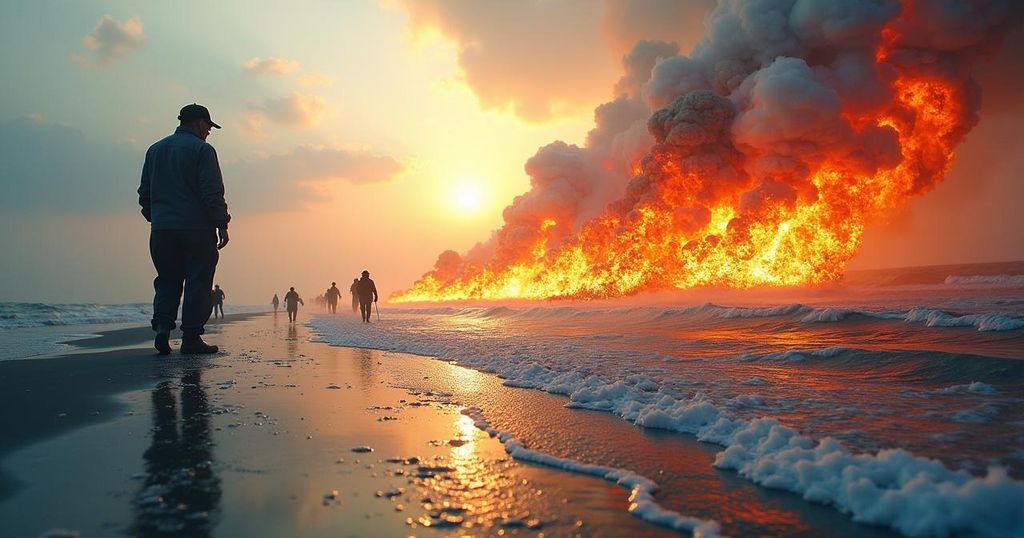On September 18, 2024, the Center for American Progress held a virtual discussion addressing policy proposals to protect vulnerable populations from extreme heat amid escalating temperatures. Key speakers included Rep. Jennifer McClellan, Dr. John Balbus, Mayor Levar Stoney, Dr. David Michaels, and Rev. Terrance McKinley, who emphasized the need for equitable solutions and a coordinated federal response to the impacts of extreme heat, particularly on marginalized communities.
On September 18, 2024, the Center for American Progress (CAP) hosted a vital virtual dialogue focused on policy measures and strategies aimed at safeguarding vulnerable populations from the ever-increasing threat of extreme heat. The discussion also highlighted initiatives aimed at reducing pollution contributing to climate change. The context of this conversation is especially critical, as 2024 has already been marked as potentially the hottest year on record, following a summer that witnessed unprecedented high temperatures. During her keynote address, Representative Jennifer McClellan (D-VA) underscored the significant impacts of extreme heat not only on Virginians but also on communities across the nation. She particularly emphasized the detrimental effects on children and praised the Inflation Reduction Act for its role in combatting the climate crisis and addressing environmental injustices. Representative McClellan expressed both personal conviction and a broader call to action for ongoing efforts in reducing pollution that fuels climate change. Jill Rosenthal, Public Health Policy Director at CAP, facilitated a subsequent discussion featuring prominent panelists: Dr. John Balbus from the U.S. Department of Health and Human Services, Richmond Mayor Levar Stoney, epidemiologist Dr. David Michaels from George Washington University, and Rev. Terrance McKinley from the National Black Child Development Institute. Key points from their discussion included: – Dr. Balbus emphasized the need for a robust federal response to the extreme heat crisis, championing resources like the HeatRisk tool provided by the Centers for Disease Control and Prevention, which assists businesses and localities in preparing for extreme heat events. He also introduced the Biden-Harris administration’s national heat strategy, aimed at coordinating efforts across nearly 30 federal agencies to address the challenges of extreme heat comprehensively. – Rev. McKinley discussed the intersectionality of extreme heat with historical inequities and the conditions that exacerbate heat risks in Black and low-income communities. He called for equitable solutions, highlighting the importance of accessibility to cooling systems, workplace protections for all employees, and enhanced healthcare access. – Mayor Stoney outlined his approach to combat extreme heat in Richmond, focusing on targeted investments in marginalized communities. His plan includes revitalizing the city’s tree canopy, increasing green spaces through city land conversion, enhancing walkability to these areas, implementing reflective infrastructure, and minimizing carbon dependency. – Dr. Michaels addressed the proposed Occupational Safety and Health Administration (OSHA) rule that aims to protect workers from extreme heat, noting its potential to save lives and boost productivity. He further pointed out the role of state and local governments in establishing specific heat standards, relating it to inequities in workplace safety during the COVID-19 pandemic. In conclusion, CAP Public Health Policy Associate Director Marquisha Johns summarized the discussions, expressed gratitude to the speakers, and previewed future CAP projects related to extreme heat, including a report on maternal health and an upcoming brief focused on ensuring access to cool and healthy living environments.
The conversation hosted by the Center for American Progress is set against a backdrop of alarming climate trends, with 2024 predicted to be among the hottest years recorded following a summer of extreme temperatures. This situation necessitates urgent policy actions to protect vulnerable populations from the effects of climate change, specifically extreme heat, which poses significant health risks, particularly for children and marginalized communities. The discussions during this event aimed to explore innovative strategies to mitigate these risks, address the underlying pollution issues, and create equitable solutions for affected communities.
In conclusion, the event highlighted the urgency of addressing extreme heat as a public health crisis exacerbated by climate change. Notable contributions from speakers underscored the necessity for coordinated federal initiatives and targeted local strategies to protect vulnerable populations. The discussions also pointed toward the importance of equitable policies to ensure that marginalized communities receive the support needed to cope with rising temperatures and environmental injustice. Future CAP endeavors will continue to focus on these critical issues.
Original Source: www.americanprogress.org






